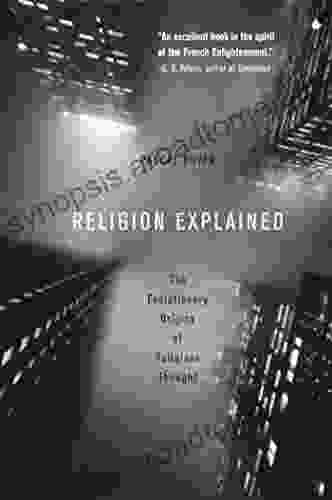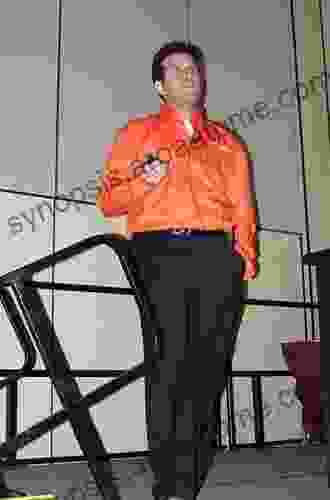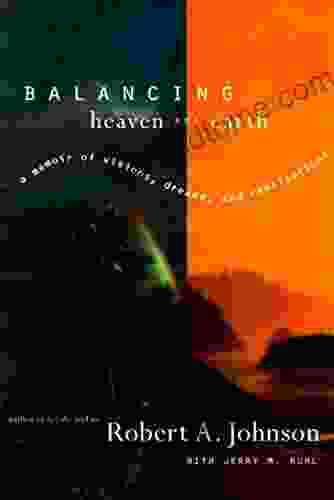Religion Explained: The Evolutionary Origins of Religious Thought

Unveiling the Enigma of Faith and Belief
For centuries, religion has captivated and shaped human societies, inspiring countless beliefs, rituals, and ways of life. But what is the origin of religion? How did human beings come to embrace the idea of supernatural beings, the afterlife, and the sacred?
In his groundbreaking book, "Religion Explained: The Evolutionary Origins of Religious Thought," renowned evolutionary psychologist Pascal Boyer offers a compelling and scientifically grounded explanation for the origins and evolution of religious thought. Drawing on cutting-edge research in cognitive science, anthropology, and evolutionary psychology, Boyer argues that religion is not simply a product of superstition or wishful thinking, but rather a natural outgrowth of our cognitive capacities and our evolutionary history.
4.4 out of 5
| Language | : | English |
| File size | : | 1068 KB |
| Text-to-Speech | : | Enabled |
| Screen Reader | : | Supported |
| Enhanced typesetting | : | Enabled |
| Word Wise | : | Enabled |
| Print length | : | 441 pages |
Cognitive Foundations of Religious Thought
Boyer begins by exploring the cognitive building blocks of religious thought. He identifies a number of cognitive biases and mental tendencies that predispose us to perceive patterns, see agency in natural events, and believe in supernatural entities. These cognitive biases, Boyer argues, are not unique to religious individuals but are part of our shared human cognitive architecture.
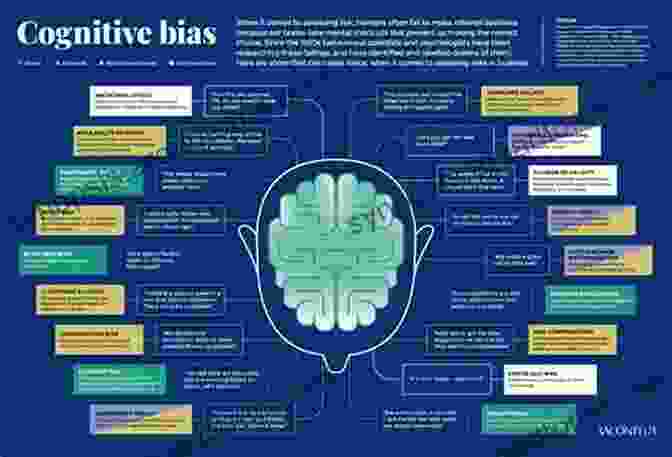
One of the key cognitive biases that Boyer highlights is the teleological bias, or the tendency to see purpose and design in natural phenomena. This bias leads us to perceive natural events as having a purpose or goal, even when there is no evidence to support such an assumption. Another important bias is the agency detection bias, or the tendency to attribute intentional behavior to non-human entities, such as animals, objects, or natural forces.
Evolutionary Origins of Religious Thought
Boyer argues that these cognitive biases, combined with our social and evolutionary history, played a significant role in the development of religious thought. In particular, he emphasizes the role of social cooperation and group cohesion in the emergence of religious beliefs and practices.
According to Boyer, religion provided a powerful mechanism for promoting cooperation and trust within groups. By creating shared beliefs, rituals, and moral codes, religion helped to establish a common sense of identity and purpose among group members. This, in turn, made it more likely that individuals would cooperate with each other, even at a personal cost.
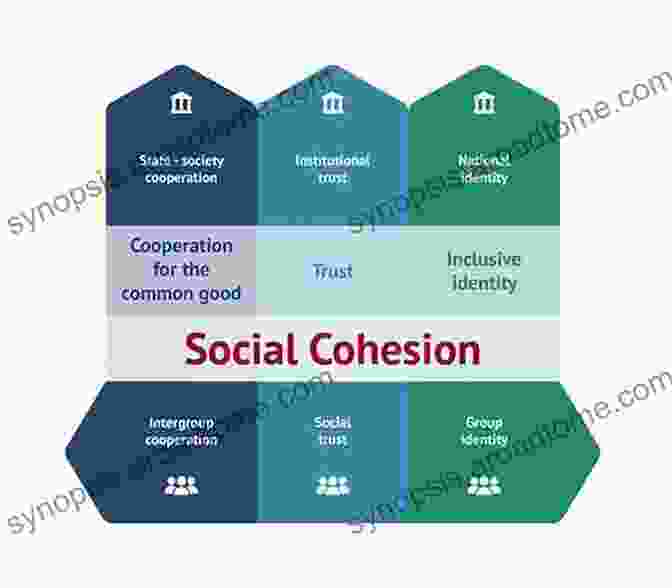
Boyer also explores the role of cultural evolution in the development of religious thought. He argues that religious beliefs and practices are not static, but rather evolve over time through a process of cultural selection. Beliefs and practices that enhance group cohesion and provide a sense of meaning and purpose are more likely to be transmitted to future generations. Over time, this process of cultural evolution leads to the emergence of complex and sophisticated religious systems.
Implications for Religious Understanding and Dialogue
Boyer's evolutionary approach to religion has significant implications for our understanding of religious diversity and the nature of religious belief. By recognizing the cognitive and evolutionary origins of religion, we can better appreciate the diversity of religious beliefs and practices and understand the role that religion plays in human societies.
This understanding can also help to foster greater tolerance and dialogue between different religious groups. By recognizing that religious beliefs are not simply arbitrary or irrational, but rather rooted in our cognitive and evolutionary nature, we can better understand and respect the beliefs of others, even if they differ from our own.
"Religion Explained: The Evolutionary Origins of Religious Thought" is a groundbreaking work that provides a comprehensive and scientifically grounded explanation for the origins and evolution of religious thought. By drawing on the latest research in cognitive science, anthropology, and evolutionary psychology, Boyer offers a fresh and insightful perspective on the enigmatic world of religion.
This book is essential reading for anyone interested in the scientific study of religion, the evolution of human cognition, or the nature of human spirituality. It is a thought-provoking and challenging work that will undoubtedly shape our understanding of religion for years to come.
Free Download your copy of "Religion Explained: The Evolutionary Origins of Religious Thought" today and embark on a captivating journey into the enigma of faith and belief.
4.4 out of 5
| Language | : | English |
| File size | : | 1068 KB |
| Text-to-Speech | : | Enabled |
| Screen Reader | : | Supported |
| Enhanced typesetting | : | Enabled |
| Word Wise | : | Enabled |
| Print length | : | 441 pages |
Do you want to contribute by writing guest posts on this blog?
Please contact us and send us a resume of previous articles that you have written.
 Book
Book Novel
Novel Page
Page Chapter
Chapter Text
Text Story
Story Genre
Genre Reader
Reader Library
Library Paperback
Paperback E-book
E-book Magazine
Magazine Newspaper
Newspaper Paragraph
Paragraph Sentence
Sentence Bookmark
Bookmark Shelf
Shelf Glossary
Glossary Bibliography
Bibliography Foreword
Foreword Preface
Preface Synopsis
Synopsis Annotation
Annotation Footnote
Footnote Manuscript
Manuscript Scroll
Scroll Codex
Codex Tome
Tome Bestseller
Bestseller Classics
Classics Library card
Library card Narrative
Narrative Biography
Biography Autobiography
Autobiography Memoir
Memoir Reference
Reference Encyclopedia
Encyclopedia Press Graye
Press Graye Richard Martini
Richard Martini Deran Young
Deran Young Eileen Brady
Eileen Brady David Seabury
David Seabury Lisa Fridsma
Lisa Fridsma Daniel A Barone
Daniel A Barone John Thomas
John Thomas David Fletcher
David Fletcher Kirk Hall
Kirk Hall Denese Neu
Denese Neu Rongling Wu
Rongling Wu Derek M Steinbacher
Derek M Steinbacher Farzana Prior
Farzana Prior Mike Halsey
Mike Halsey Jim Lewis
Jim Lewis Jono Neiger
Jono Neiger David M Whitacre
David M Whitacre Husain Haqqani
Husain Haqqani Sanjay D
Sanjay D
Light bulbAdvertise smarter! Our strategic ad space ensures maximum exposure. Reserve your spot today!
 Gordon CoxFollow ·2.8k
Gordon CoxFollow ·2.8k Avery SimmonsFollow ·19.4k
Avery SimmonsFollow ·19.4k W.H. AudenFollow ·2.8k
W.H. AudenFollow ·2.8k Steve CarterFollow ·10.3k
Steve CarterFollow ·10.3k Dwayne MitchellFollow ·8.6k
Dwayne MitchellFollow ·8.6k Leo TolstoyFollow ·12.5k
Leo TolstoyFollow ·12.5k Harold BlairFollow ·14k
Harold BlairFollow ·14k Elliott CarterFollow ·13.7k
Elliott CarterFollow ·13.7k

 Isaac Bell
Isaac BellUnveiling the Enchanting World of Customs and Crafts:...
Embark on a captivating journey through the...

 Allen Parker
Allen ParkerHow to Write a Nonfiction Memoir: The Bookcraft Guide
Have you ever wanted...

 Nathaniel Powell
Nathaniel PowellCelebrate Spring's Arrival with Traditions from Around...
Immerse Yourself in the Vibrant Cultures of...

 Hunter Mitchell
Hunter MitchellThe Skeletal Muscles of the Human Body: An In-Depth Guide
The skeletal muscles of the human body are...

 Justin Bell
Justin BellFirst Aid for the NBDE: Your Essential Guide to Exam...
Master the NBDE...
4.4 out of 5
| Language | : | English |
| File size | : | 1068 KB |
| Text-to-Speech | : | Enabled |
| Screen Reader | : | Supported |
| Enhanced typesetting | : | Enabled |
| Word Wise | : | Enabled |
| Print length | : | 441 pages |


